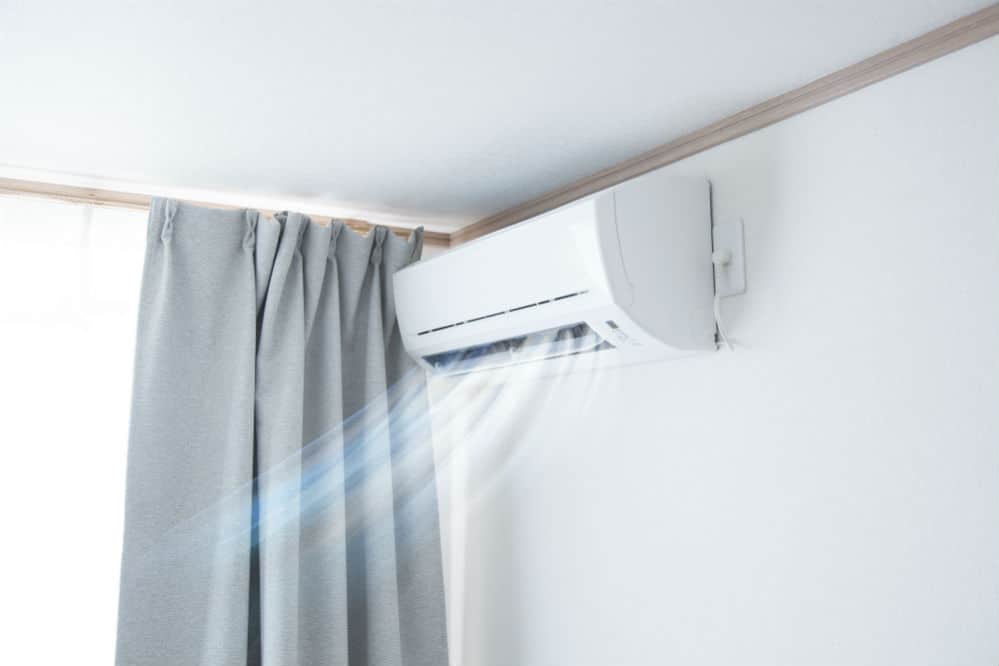Air conditioners are an absolute godsend during those hot and humid summers as we scramble to find the nearest “cool zone.” AC units not only help us achieve a more comfortable living temperature but also provide an escape from health-threatening conditions such as heat stroke, exhaustion, and syncope (fainting).
So when an AC unit doesn’t work efficiently or at all, it can cause absolute mayhem in the household. Before running over to your neighbors for sanctuary from the heat, you should learn and keep in mind some common reasons why air conditioner freezes up. However, the only way for us to understand how air conditioners freeze during operation is for us to have a basic understanding of how the process works.
The basic principle behind the operation of air conditioners is dependent on the refrigerant. Basically, the chemical (refrigerant) will loop from the inside to the outside, and then, back again, absorbing and then releasing heat. The refrigerant is then cooled before re-entering the home where the cycle starts again.
Contents
Common Reasons Why Air Conditioner Freezes Up
Most common problems faced by modern-day air conditioners can typically be avoided through regular and thorough maintenance. Nevertheless, we understand that sometimes, the simple things can often slip your mind. This is why we’ve compiled a list of the more common reasons your AC unit might freeze up along with more popular solutions.
Low Refrigerant
Refrigerants are a very versatile chemical that reacts differently to varying pressures or temperatures. A change in its environment, most likely a change in pressure seen by a knock or some form of damage, can cause the refrigerant to react unexpectedly. Typically, there will be moisture formation and ice buildup.
The build-up of ice will eventually act as an insulator and cause the refrigerant to evaporate at a faster rate until it becomes low. While most AC units can still operate with minor levels of ice, when it builds up to high a degree, it’ll cause the air conditioner to freeze up completely. This is one of the more serious problems to occur due to the potential of causing water damage to the unit, requiring components to be completely changed.
- Solution
When you notice a performance change in your air conditioner, check the lines for exterior ice buildup. If the ice formation is at a minor level, simply top up the refrigerant levels for the AC to return to optimal operation.
If your unit has stopped working altogether, then it’s more likely that the unit has suffered water damage due to great ice buildup. For such a case, you’ll need to call a qualified engineer to inspect the system.
Poor Airflow
Depending upon the location of your AC unit, it may have difficulty getting enough air to circulate through the system. This lack of warm air inside will lead to condensation around the coils, which will then form ice in due time.
- Solution
The first item to check is the filters on the machine as they regularly become blocked through heavy use and may simply need to be cleaned or replaced. Typically, it’s best to just turn the unit off for a period of 90+ minutes to allow the system to defrost on its own. Upon restart, the system should operate with full functionality.
Dirty Coils
Air conditioners operate by removing moisture from the air. That causes condensation throughout the machine predominantly along the evaporator coil. This excess condensation collects in the drip tray located at the bottom of the unit.
However, if this hasn’t been emptied, it can overflow and lead to the coils icing over. An accumulation of dirt around the coils works in a similar fashion as the coils aren’t able to absorb the water fast enough, which will contribute to the overflow.
- Solution
Firstly, this can be easily avoided through simple maintenance, which is regularly emptying the drip tray and wiping down the coils. This is also the process to remedy the situation. However, if you don’t feel comfortable around that part of the machine, it’s always best to have it conducted by a professional, which can also significantly reduce the risk of further damage.
Mechanical Issues
The most common and detrimental mechanical issue you can encounter is a damaged or broken fan. The blower fan is responsible for extracting the warm air from the inside of your home, which will then be converted to cold air.
If not enough warm air is entering the AC system, the airflow dynamic will drastically change. This leads to a lower evaporation rate leading to condensation and inevitable freezing of the parts as well as causing the refrigerant line to freeze over.
- Solution
In this scenario, the best course of action is to let the unit defrost before having the fan removed and replaced by a professional. Hence, when it comes to mechanical faults, there are no quick fixes, and the best course of action is to use a professional service to ensure a guaranteed level of work whilst also not voiding your warranty.
Final Thoughts
While problems are bound to result from heavy or prolonged use, most of the common issues causing an AC unit to freeze can be prevented through simple routine maintenance and check-ups. There are many AC service companies around that typically recommend these be carried out on a bi-annual basis.
The cost of a check-up seems negligible after suffering from the summer heat for a few days, but before calling a professional, always attempt to defrost and then restart the machine first. More often than not, this will solve numerous problems and save you some time and money.


